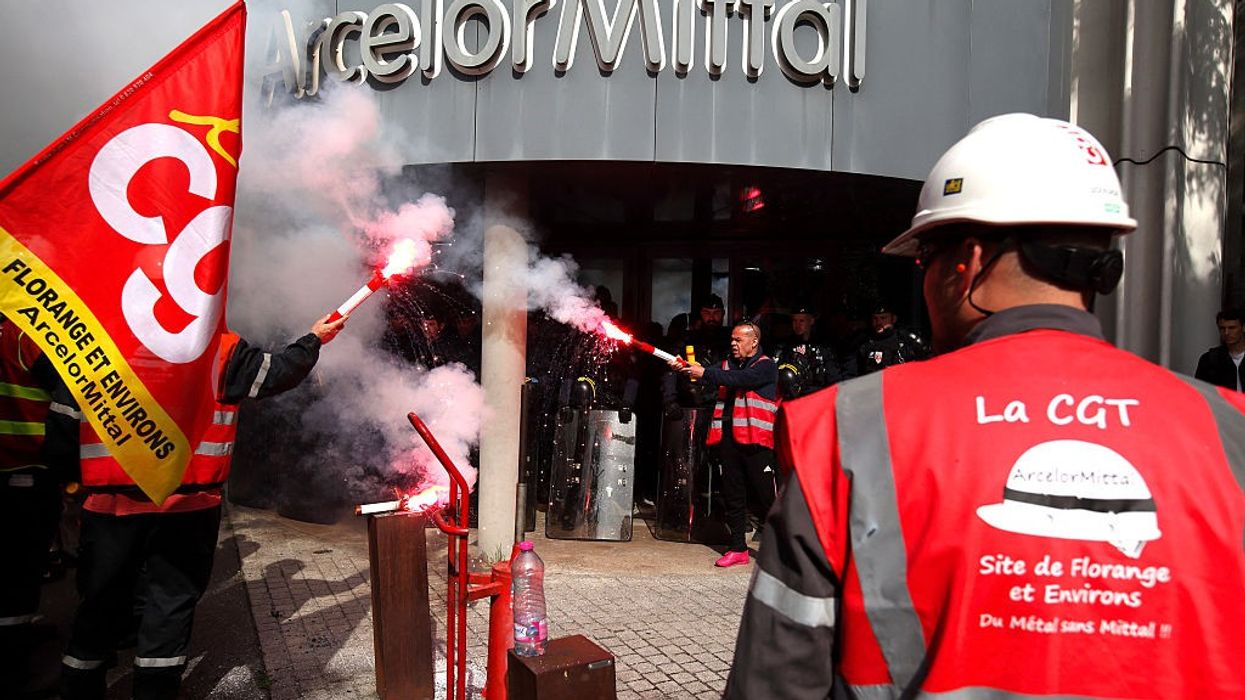UNIONS in France fighting to save 600 jobs at ArcelorMittal operations in the country called for the government to take control of them, along the lines of what has happened to British Steel.
CGT union chief Sophie Binet promised hundreds of workers demonstrating outside ArcelorMittal's offices of its French subsidiary in France that she would press the issue with president Emmanuel Macron.
"I will deliver to him the CGT proposals to nationalise" the group's French operations, she told the protesting workers.
ArcelorMittal announced plans last month to cut 600 jobs across the seven sites it has in France, from a total workforce in the country of around 7,100 people. It is in the process of negotiating the job reductions with unions.
The group -- the second-biggest steelmaker in the world, formed from a merger of India's Mittal Steel with European company Arcelor -- has warned of industry "uncertainty" after the US imposed 25-per cent tariffs on steel and aluminium imports.
Yet the group in April posted a quarterly group net profit of $805 million (£633m). To shave costs, it is shifting some support jobs from Europe to India, and last year it suspended a $2 billion (£1.57bn) decarbonisation investment in France.
French unions believe Macron's government can follow the lead of its British counterpart, which last month passed a law allowing it to take control of ailing British Steel.
Italy last year also ousted ArcelorMittal as owner of its debt-ridden ex-Ilva plant, accusing the company of failing to prop up the operation after buying control in 2018.
"The Italians have done it, the British have done it... so why aren't we French able to also do it?" asked a regional CGT head, Gaetan Lecocq.
But a junior French minister for business, Veronique Louwagie, told parliament that "nationalisation is not a response in itself to the difficulties faced by the European steel industry".
She also said, however, that the government expected the company "to give what its mid-term strategy in France is".
A lawmaker with the hard-left France Unbowed party, Aurelie Trouve, has put forward a bill for the nationalisation of ArcelorMittal in France.
Trouve said the company "has clearly been organising the offshoring of production for years, and now we are faced with an emergency".
(AFP)





